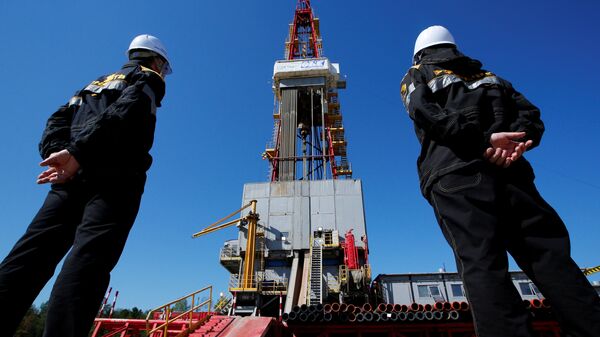Leading exporter Saudi Arabia, which blocked a production cut in November 2014 that would have bolstered global oil prices, has now managed to agree a deal with Iran, Venezuela and other members of the cartel.
OPEC has agreed to cut production from January 1 by about 1.2 million barrels per day, or about 4.5 percent of current production, to 32.5 million barrels per day.
The price of oil surged nine percent after Wednesday's announcement, and has continued to rise since then. On Friday Brent crude was trading at $54.46 per barrel, 13 percent higher than at the start of the week.
The deal was reached despite serious differences within OPEC. Iran, having recently had economic sanctions connected with its nuclear program lifted, was keen to increase its production to pre-sanctions levels.
In Libya and Nigeria, political instability and terror attacks on oil infrastructure have decreased output, making them reluctant to agree to a freeze limiting their oil output at current levels.
All three countries have been granted an exemption from the deal, which is contingent on securing the agreement of non-OPEC producers to lower production by 600,000 barrels per day.
Nigeria's Minister of State for Petroleum, Dr. Ibe Kachikwu, said that Russia and other non-OPEC producers have also agreed to lower production by 600,000 barrels per day, a key element of the deal.
"I'm glad to report that the Russian Federation already committed to reduce 300,000 barrels [per day]," OPEC President Mohammed Bin Saleh Sada said.
Russia's involvement turned out to be essential, and a telephone call between Russian Energy Minister Alexander Novak and Saudi Arabian Energy Minister Khalid Al-Falih in the early hours of November 29 was key to bringing about the agreement.
While Novak had previously maintained that Russia wanted only to freeze production, he now offered his Saudi colleague a tempting compromise.
"Russia welcomes OPEC's achievement in reaching agreement … this is a very important step for the global oil industry, aimed at restoring a healthy balance of supply and demand, and also maintaining the investment attractiveness of the industry in the long term," Novak commented on the agreement.
Russian newspaper Vzglyad remarked that the OPEC agreement comes after recent meetings between Russian President Vladimir Putin and his counterparts in Iran and Saudi Arabia, two of OPEC's biggest producers, at which the issue was discussed.
In September President Putin and Saudi Deputy Crown Prince Mohammed bin Salman met on the sidelines of the G20 summit to discuss a range of topics, including co-operation in the oil sector, Kremlin spokesman Dmitry Peskov said.
Just two days before the OPEC deal, Putin and Iranian President Hasan Rouhani had a telephone conversation in which they also discussed co-operation in the oil sector.
"The Presidents agreed to continue coordinating steps in the global hydrocarbon markets, including within the framework of dialogue between Russia and OPEC. They noted the fundamental importance of measures taken by OPEC to restrict oil production as a key factor in the stabilization of the global oil market," the Kremlin said in a statement.



